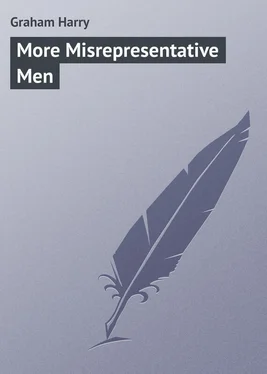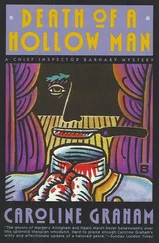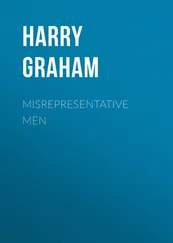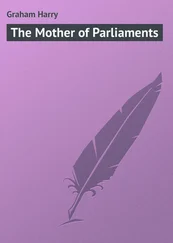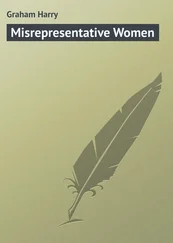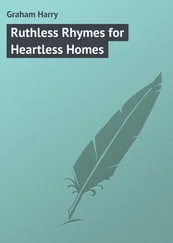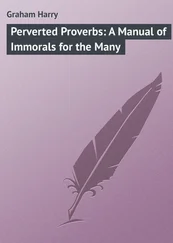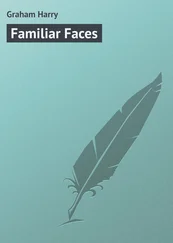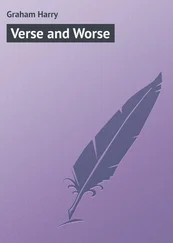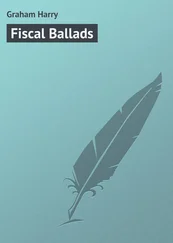"Men were deceivers ever!" True,
As Shakespeare says (Hey Nonny! Nonny!),
But one should always keep in view
That " tout comprendr' c'est tout pardonny ";
In judging poets it suffices
To scan their verses, not their vices.
…
The poets of the present time
Attempt their feeble imitations;
Are economical of rhyme,
And lavish with reiterations;
The while a patient public swallows
A "Border Ballad" much as follows: —
Jamie lad, I lo'e ye weel,
Jamie lad, I lo'e nae ither,
Jamie lad, I lo'e ye weel,
Like a mither.
Jamie's ganging doon the burn,
Jamie's ganging doon, whateffer,
Jamie's ganging doon the burn,
To Strathpeffer!
Jamie's comin' hame to dee,
Jamie's comin' hame, I'm thinkin',
Jamie's comin' hame to dee,
Dee o' drinkin'!
Hech! Jamie! Losh! Jamie!
Dinna greet sae sair!
Gin ye canna, winna, shanna
See yer lassie mair!
Wha' hoo!
Wha' hae!
Strathpeffer!
I give you now, as antidote,
Some lines which I myself indited.
Carnegie, when he read them, wrote
To say that he was quite delighted;
Their pathos cut him to the quick,
Their humour almost made him sick.
The queys are moopin' i' the mirk,
An' gin ye thole ahin' the kirk,
I'll gar ye tocher hame fra' work,
Sae straught an' primsie;
In vain the lavrock leaves the snaw,
The sonsie cowslips blithely blaw,
The elbucks wheep adoon the shaw,
Or warl a whimsy.
The cootie muircocks crousely craw,
The maukins tak' their fud fu' braw,
I gie their wames a random paw,
For a' they're skilpy;
For wha' sae glaikit, gleg an' din,
To but the ben, or loup the linn,
Or scraw aboon the tirlin'-pin
Sae frae an' gilpie?
Och, snood the sporran roun' ma lap,
The cairngorm clap in ilka cap,
Och, hand me o'er
Ma lang claymore,
Twa, bannocks an' a bap,
Wha hoo!
Twa bannocks an' a bap!
…
O fellow Scotsman, near and far,
Renowned for health and good digestion,
For all that makes you what you are, —
(But are you really? That's the question) —
Be grateful, while the world endures,
That Burns was countryman of yours.
And hand-in-hand, in alien land,
Foregather with your fellow cronies,
To masticate the haggis (cann'd)
At Scottish Conversaziones,
Where, flushed with wine and Auld Lang Syne,
You worship at your country's shrine!
HOWblest a thing it is to die
For Country's sake, as bards have sung!
How sweet "pro patria mori,"
(To quote the vulgar Latin tongue);
And yet to him the palm we give
Who for his fatherland can live .
Historians have explained to us,
In terms that never can grow cold,
How well the bold Horatius
Played bridge in the brave days of old;
And we can read of hosts of others,
From Spartan boys to Roman mothers.
But nowhere has the student got,
From poet, pedagogue, or pastor,
The picture of a patriot
So truly typical as Astor;
And none has ever shown a greater
Affection for his Alma Mater.
With loyalty to Fatherland
His heart inflexible as starch is,
Whene'er he hears upon a band
The too prolific Sousa's marches;
And from his eyes a tear he wipes,
Each time he sees the Stars and Stripes.
Tho' others roam across the foam
To European health resorts,
The fact that "there's no place like home"
Is foremost in our hero's thoughts;
And all in vain have people tried
To lure him from his "ain fireside."
Let tourists travel near or far,
By wayward breezes widely blown,
He stops at the Astoria,
"A poor thing" (Shakespeare), "but his own;"
And nothing that his friends may do
Can drag him from Fifth Avenue.
The Western heiress is content
To scale, as a prospective bride,
The bare six-story tenement
Where foreign pauper peers reside;
But men like Astor all disparage
The so-called Morgan-attic marriage.
Конец ознакомительного фрагмента.
Текст предоставлен ООО «ЛитРес».
Прочитайте эту книгу целиком, купив полную легальную версию на ЛитРес.
Безопасно оплатить книгу можно банковской картой Visa, MasterCard, Maestro, со счета мобильного телефона, с платежного терминала, в салоне МТС или Связной, через PayPal, WebMoney, Яндекс.Деньги, QIWI Кошелек, бонусными картами или другим удобным Вам способом.
